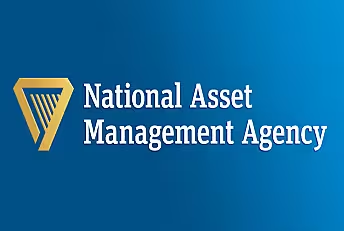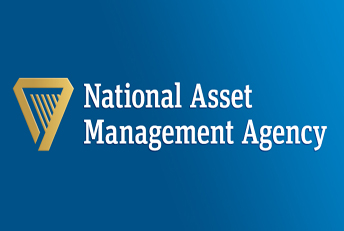
The National Asset Management Agency is set to put 750 homes on the market next year as part of a negative equity protection scheme.
The agency does not need Government approval to proceed, but says it “wants to bring all relevant stakeholders into the process”.
Informed sources say NAMA is finalising plans on how the scheme will operate with special mortgages available through three banks, AIB, Bank of Ireland and Permanent TSB.
While it is piloting the sale of 750 homes, the Irish Times reports the agency has signalled that it would like to sell up to 5,000 homes. The plan created controversy after former minister for housing Willie Penrose expressed concern it was contrary to Government policy and could artificially inflate the property market before it hits the bottom.
The scheme works by waiving 20% of the purchase price of a home if its value continues to fall over the next five years.
For example, if a couple bought a home from the banks via NAMA for €200,000, the agency would defer payment of up to 20 per cent – or €40,000 in this instance – of the property’s current value.
The couple would only have to make this payment in five years’ time if the value of the property stays the same or increases. However, if the property is worth less than €200,000, NAMA will waive up to €40,000 and repayments would be altered accordingly.
In recent weeks, Mr Penrose wrote to Minister for Finance Michael Noonan warning that providing incentives to buy houses would run counter to Government policies. The housing policy launched earlier this year identified tax incentives for housing as a driver behind the bubble.
While NAMA is preparing to launch the scheme early next year, informed sources within Government say it has yet to be signed off. Mr Noonan said the details were being “reviewed” and he would respond to NAMA. He noted NAMA’s board had approved the scheme.
The scheme has attracted criticism. OECD economist Christopher Andre told a conference recently that providing incentives had proved to be “counter-productive” in other countries.
NAMA, for its part, insists the scheme is a short-term measure and will not interfere with the market. Officials point out that the move would bring in more taxes. If 5,000 houses or apartments were sold for €200,000 each, this could raise €135 million for the exchequer through VAT receipts.
The most the State could lose, according to Nama, is about €65 million. This is the difference between the amount raised in VAT from the sales and the €200 million which might be waived.
The Construction Industry Federation says it provides a template that could be adopted.





